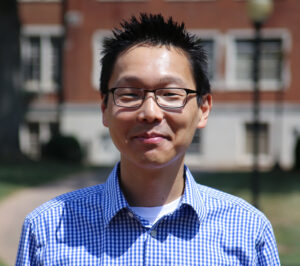
Can We Practice What We Teach? When Online Education is Not a Panacea
Before the pandemic, one of the most pressing subjects for discussion and debate in my context, teaching at a freestanding seminary, was the transition to online education. I recall lively conversations engaging the merits and challenges of “moving online” in formal faculty meetings, and the sometimes more important informal tête-à-têtes with small groups of colleagues in hallways and offices. One line of thinking warned that the pedagogy employed in certain courses and disciplines would not be as effective online. Another approach suggested that the future of theological education would be online, especially for freestanding seminaries, because of the shifting patterns in enrollment. There were less “traditional” students seeking residential or in-person education and more “non-traditional” students pursuing fully or mostly online degrees. Both perspectives presented harbingers of ruin, identity loss, and irrelevancy.
Then came the pandemic. We all became online instructors. Chapel services and committee meetings also migrated to virtual spaces in which everyone appeared in little rectangle boxes. For a while it was fun to experiment with different virtual backgrounds, such as picturesque beaches, majestic mountains, and Dunder Mifflin. Although the pandemic is not over, I believe the questions about capacities for online education have largely been resolved at my seminary and elsewhere. All our courses can be taught online. Each of our schools can offer fully online degrees. I suppose the question moving forward is how many more of our institutions will do so.
Pastors experienced a similar phenomenon as the congregations they served also migrated online. At one level, the past two years have revealed new possibilities for ministry utilizing virtual tools, such as enabling closer remote contact with previously isolated parishioners with less access to physical gatherings. Yet at another level, it is also clear that a robust online ministry is not a panacea. The fact that everyone can participate in a worship service from their own homes does not make preaching any easier. Moving online does not sufficiently address the existing interpersonal conflicts, harmful theologies, and spiritual wounds within a congregation.
Therefore, my pedagogy continues to connect the history of Christianity in the United States with the praxis of congregational ministry today. One promising topic I continue to cultivate with my students is the gap between seminaries and congregations regarding biblical interpretation. For many of us, it is daunting to apply what we learn about the Bible, such as historical-critical approaches to the authorship of various books and womanist reconstructions of problematic narratives, in local congregations accustomed to the hermeneutics of inerrancy and literalism. In these classroom dialogues with students, we stress the virtues of an authentically incremental approach in which new pastors seek to build trust, develop relationships, and more fully understand the histories, complexities, and strengths of the congregations they serve while remaining true to their personal convictions. Pastoral leadership is an exercise of one’s gifts with humility, openness, courage, and determination.
I do not want to speak for all freestanding seminaries, but I will venture to propose that online education is likewise not a panacea. I believe the time that I have invested in developing and refining my pedagogical skills for online instruction is a worthy investment, but I also recognize that seminaries like mine need more than good online courses. What about our oppressive structures, longstanding hierarchies, painful ambiguities, and underexamined practices? My point is not to be a naysaying critic of either my institution or theological education writ large, but it is to ask an important question that defies easy or universal answers: Can we practice what we teach? Or put another way: Can theological faculty be agents of institutional change?
One painful ambiguity in some contexts involves whether a seminary is a school or a church. Of course, a seminary is an academic institution and not a church. But it gets confusing when we pray before classes and meetings, worship together in chapel services that feel no different than being in a church on Sunday morning, and educate students for congregational ministry. Therefore, the notion of the seminary as model church is not an unfounded or unreasonable expectation. But the organizational systems of seminaries are unlike congregations. Professors are not the pastors of a seminary. In my denomination, the Presbyterian Church (U.S.A.), a session comprising elected lay leaders (ruling elders) and installed pastors serve as the “council for the congregation,” which means a pastor works together with laypersons to exercise oversight and leadership of the church’s affairs. Seminaries are academic institutions in which the responsibilities of oversight and leadership belong to administrators and a board of trustees. A pastor is almost always “in the room where it happens.” A professor is in the classroom, not the boardroom. This does not imply a negative answer to my question concerning whether theological faculty can be agents of institutional change, but I am hoping to provoke further exploration of how faculty can practice what we teach.
Leave a Reply